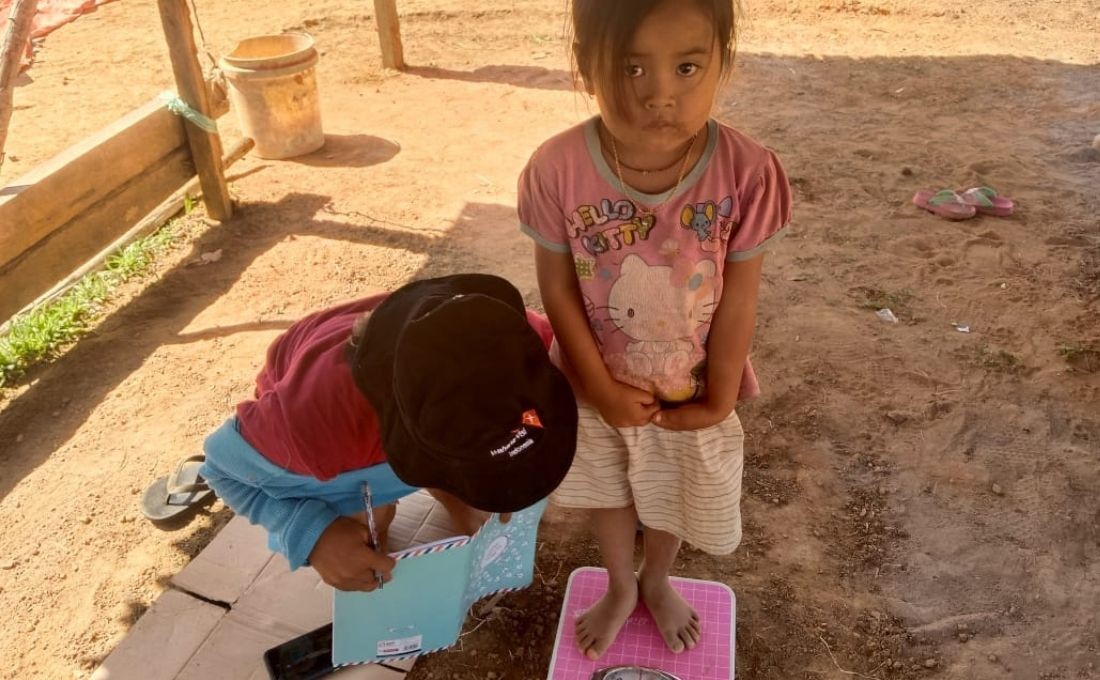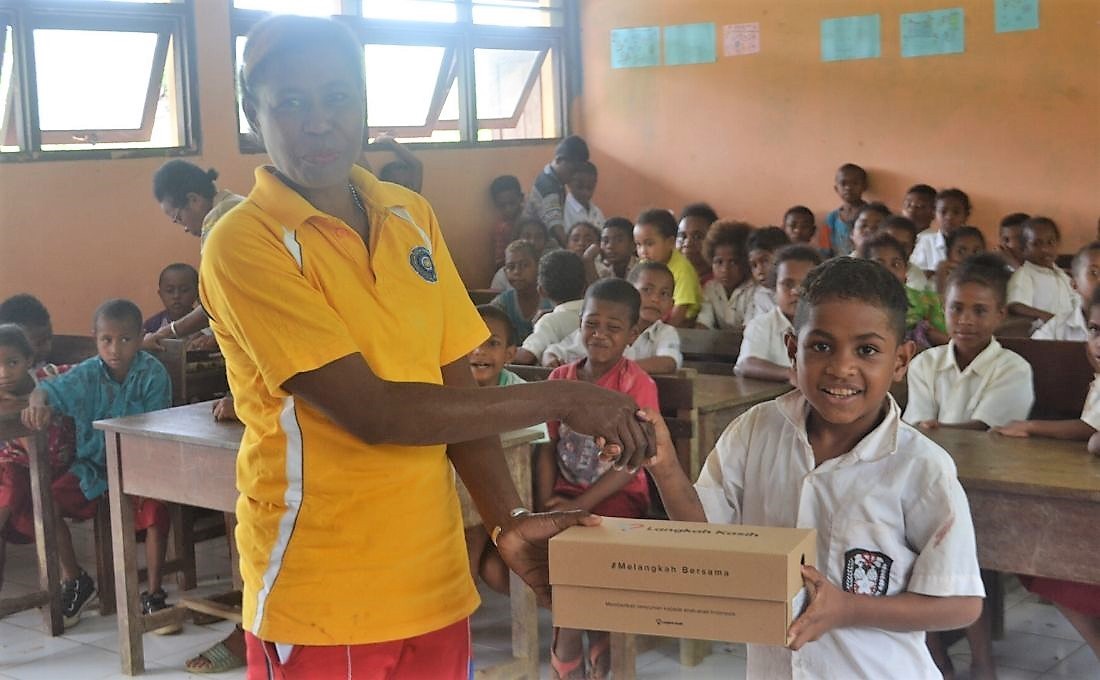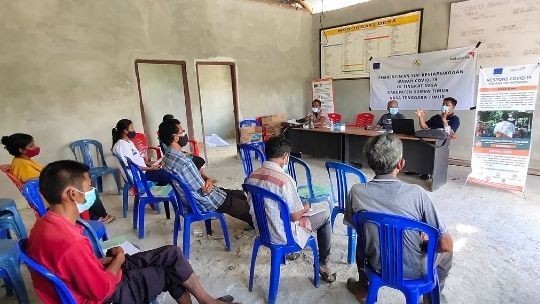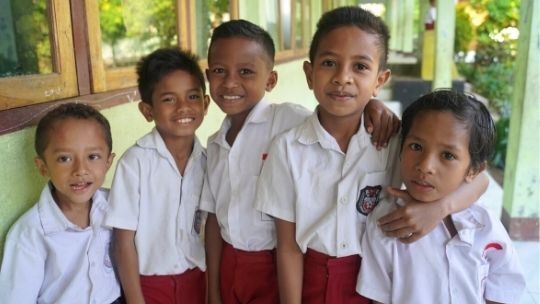Home Visits Activity Helps Overcome Stunting in the Village

After a child is 1 year old, the number of visits by mothers or caregivers to the posyandu decreases, especially for mothers who feel that their children have received complete vaccines, even though posyandu is not only related to vaccination. This happened in Wahana Visi Indonesia (WVI) service areas, one of which was in the Bengkulu Selatan Area Program.
When coming to the posyandu (integrated health post), the child's weight, height, and head circumference are measured to detect early on if undesirable things occur such as malnutrition. However, there are still many parents who think that the posyandu is only for weighing and vaccinating their children.
The Kemuning Posyandu in a village in South Bengkulu Regency also faces challenges regarding community participation. On average per month, the number of community visits is only 14% of the total number of children under five (91 children). These children are children under the age of 1 year. Most parents are lazy to take their children to posyandu because they have finished giving immunizations to their children.
Departing from this, Kemuning Posyandu cadres took the initiative to “pick up the ball”, namely making home visits to ensure that the health of children under five was monitored.
"By doing home visits, we can slightly encourage parents to pay more attention to their children and if possible we can invite them to the posyandu so that children's growth can be properly controlled by people who are more understanding, such as the Health Service," said Rezi Kosila (23), one of the cadres at the Kemuning Posyandu.
The cadres at the Kemuning Posyandu are posyandu cadres who receive direct assistance from WVI. At the beginning of their duties, the cadres only served 10-15 children out of 91 children under five per month. However, with the knowledge they gain from posyandu training, PMBA (Baby and Child Feeding) counseling training, and routine assistance at posyandu, they are burdened with being able to serve other children as well.
With good encouragement from the village PKK, puskesmas (public health center), and WVI, they shared tasks at the end of each posyandu activity to visit children who were not present at the posyandu. As a result, in April 2022, they managed to monitor the development of up to 66 children (72%).
"That has become our duty, from home visits we can learn to work together, know the number of children, and we are also taught to be patient because sometimes there are also parents who don't like it," continued this mother of one.
The results of these home visits are then reported to the puskesmas and village government. The cadres asked for continued support from the village government, especially for toddlers' visits to the posyandu. The hope is that after doing home visits, the community will understand the importance of monitoring children's health every month at the posyandu.
"Don't be tired to teach us towards goodness. Hopefully, our village will be much better than before. Hopefully, we and WVI can encourage the community to take their children to the posyandu. Thank you WVI," she concluded.
Written by: Nurpita Friska Sagala, South Bengkulu Program Area Coordinator, Wahana Visi Indonesia



